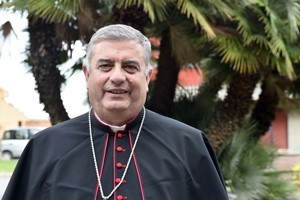 It was a ‘simple and joyous’ priest who went to the home of his family during the holidays that made him fall in love with Franciscan life. But the example to follow came from his grandfather Pepe, whose name he was given, who became a widower at a rather young age with four children to bring up. He was a peasant from Galicia who used to say to his grandchildren: ‘Your word is like a testament, before pronouncing it you should think, and after pronouncing it you should put it into practice’
It was a ‘simple and joyous’ priest who went to the home of his family during the holidays that made him fall in love with Franciscan life. But the example to follow came from his grandfather Pepe, whose name he was given, who became a widower at a rather young age with four children to bring up. He was a peasant from Galicia who used to say to his grandchildren: ‘Your word is like a testament, before pronouncing it you should think, and after pronouncing it you should put it into practice’
For Monsignor José Rodríguez Carballo, the Secretary of the Congregation for Institutes of Consecrated Life and Societies of Apostolic Life, his vocation arose in his family. ‘I remember the day when I wrote to my parents from Jerusalem to tell them about my solemn profession. My mother answered: “My son we are happy that you have become a friar but if you see that the Lord is not calling you to that life come back. You will be received with love”. This sense of freedom has always accompanied me’.
The Dicastery for Consecrated Life is now fully engaged in organising one of the most awaited events of the Year of Consecrated Life: the world meeting for young consecrated men and women which is planned for 15-19 September and will be held in Rome.
Is the Holy See listening to young people who choose the religious life?
‘When we began to plan the events for the Year of Consecrated Life young people were our first thought: not because they are the future of consecrated life but because they are the present. We will speak about fundamental topics such as consecration, fraternal life and mission. These young men and women will be called upon to talk about their joys and hopes. We expect at least 5,000 from all over the world’.
And yet there are difficulties for young people who choose consecration…
‘The commitment unto death, the ‘for ever’, is not easy to understand. The family is the first reality to suffer because of this culture of the temporary. One has to understand that a vocation to consecrated life requires an unconditional and final response. Then there is a generational difficulty. In very many communities and institutes the pyramid of age has been turned upside down – there are few young consecrated people and very many elderly consecrated people. But the Church today asks for creative faithfulness, and this is not possible without the experience and the memories of the elderly and the newness of the young. Existential dialogue between the two is needed’.
Those who choose consecrated life must also redefine their priorities…
‘At times people do not base themselves on the fundamental elements of consecrated life but on minor aspects. The essential is confused with the secondary. At the beginning, everything is essential but with the passing of time the risk is that everything will become secondary. The challenge is to strengthen an identity that has its unity in the essential elements of consecrated life: vows, fraternity and mission. Profound unity as regards these points and freedom as regards everything else is required’
Pope Francis has entrusted to consecrated men and women the task of ‘awakening the world’. What role do young consecrated men and women have?
‘The majority of consecrated men and women, in particular those who are young, live their vocations with joy. We should not forget what Pope Benedict used to repeat: ‘A tree that falls makes more noise than a whole wood that grows’. There is sin and there is infidelity in consecrated life, amongst young consecrated men and women as well. There are those who leave. But let us look at those that stay on their feet, who display great 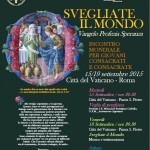 generosity in giving of themselves, who love the risk of taking the Gospel to the outskirts of the outskirts. Today young consecrated men and women, even if they are fewer in number, are no less meaningful in terms of the Gospel’.
generosity in giving of themselves, who love the risk of taking the Gospel to the outskirts of the outskirts. Today young consecrated men and women, even if they are fewer in number, are no less meaningful in terms of the Gospel’.
So there is hope as regards the future?
‘This is the moment of hope. I am not speaking about optimism because our forces as consecrated men and women are decreasing; we should leave important presences and works that have been carried forward with sacrifices. But optimism is not a gospel virtue whereas hope is founded on He for whom nothing is impossible. There are reasons for us to have hope. One need only look at the number of canonisations or the martyrs of the Church: very many of them are consecrated men and women. And then very many consecrated men and women live in the outskirts of existence. If we look at young consecrated men and women, therefore, there is hope: they are courageous witnesses to following Christ’.
People often speak about religious life as a shelter from the world…
‘We must be careful. The temptation exists, you can’t deny it. For this reason, discernment and great vigilance as regards the motivations for a vocation are needed. This is a task to which we are called in both rich countries and poor countries, because the temptations are universal! Very many young people and adults who draw near to consecrated life, however, feel a real call. In human terms, their lives are settled: they have a profession, qualifications through their studies, important jobs. And yet they leave everything to follow Christ. It is indicative that so many monastic communities involving a life of seclusion receive the vocations of young people who come from universities and prosperous backgrounds’.
What does the Church expert of consecrated men and women?
‘They should have passion for humanity, above all for the poorest, the suffering and the marginalised. Those who do not matter and to whom Pope Francis, instead, gives pride of place when he speaks about a ‘throwaway culture’. Gratitude, passion and hope are the three challenges for consecrated men and women. If we add two words, Gospel and prophecy, we have a complete picture of what men and women expect of the consecrated people of the third millennium’.
Programma in Inglese/ Francese/ Spagnolo/ Portoghese
Source: Servizio Informazione Religiosa, 14/07/2015




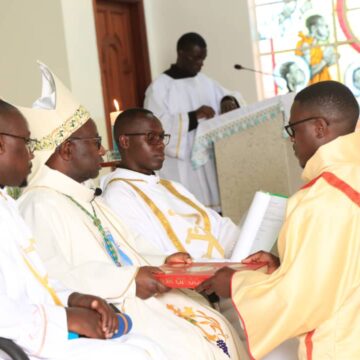

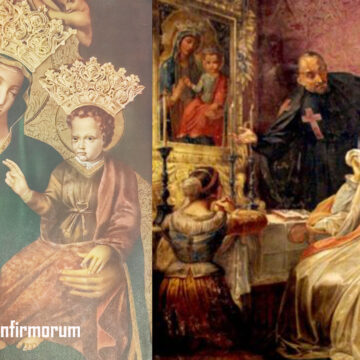

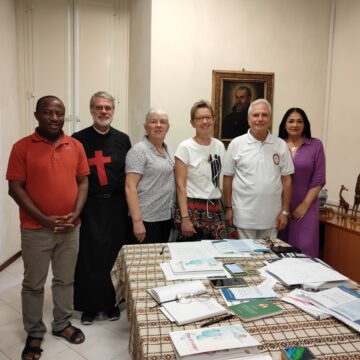

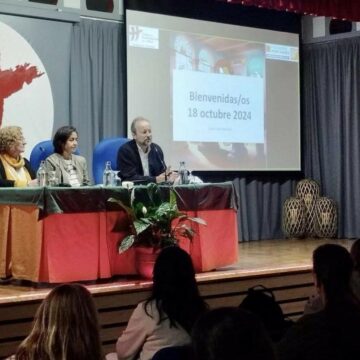
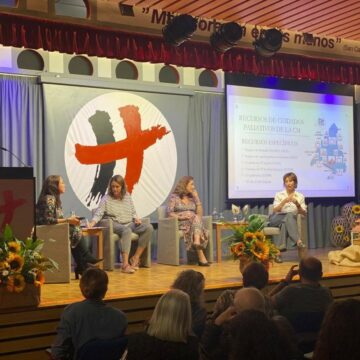
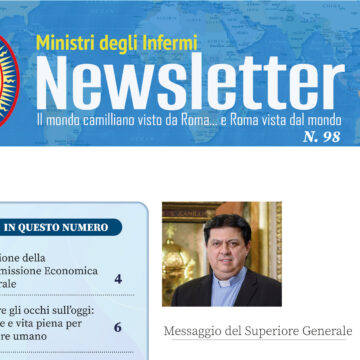
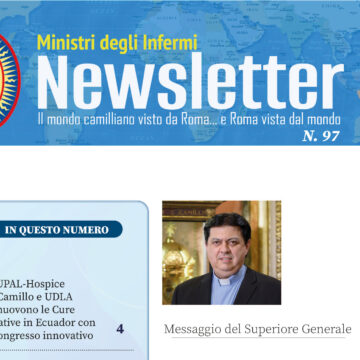
Camillians on Facebook
Camillians on Twitter
Camillians on Instagram